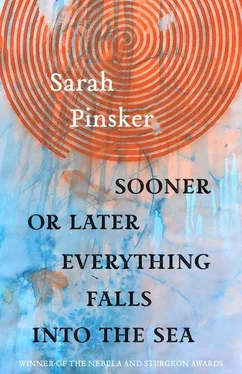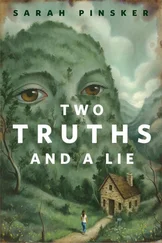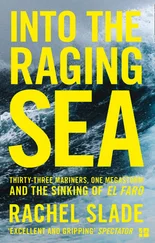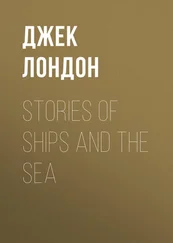The setup was loosely structured, with a leader and a few planned speakers to kick things off. The first storyteller sat to speak. She was trim, polo shirt tucked into worn jeans. She looked like she’d spent time in the sun.
“When I was a teenager, I spent my summers working at a trail riding stable in upstate New York.” Several Sarahs snapped their fingers. I realized a system had developed while I was snooping around. Snap to say that had been your experience too. Too late for me to snap with them, but so far this story was mine as well.
“I had a favorite horse, Smokey. An Appaloosa.” I snapped along. She didn’t bother describing his color, like a white horse that had rolled in dirt, or his dustbroom mane and tail. I had loved him even though he was ugly as anything.
“One afternoon, a man drove up with a little girl, maybe five or six years old. My boss put the little girl on Flicker. Flicker wasn’t the first choice for someone that small, but the kid-friendly horses were both out with another guide. There wasn’t even a children’s-sized saddle left, so we had to run the stirrups all the way up to the top hole and then flip them over. Even then, she had to stretch her toes to reach.”
We all snapped quietly. We knew this story.
“I took them on the usual circuit: through the woods, circling the pond and the far field, back into the woods, then looping out to the dirt road. The road was the problem. We sometimes raced the horses home that way when we were goofing around. It was a dumb thing to do, teaching the horses to rile themselves up and anticipate the run back to the barn, but all the teenagers working there had been doing it for as long as anyone could remember.
“I spent the whole hour thinking about ways to avoid trouble. I decided to take them back through the field so they wouldn’t race, but we still had to cross the road. Smokey jigged a bit as we crossed, but listened to me. It was Flicker who bolted toward home. She probably didn’t even realize there was someone on her back, the kid was so small.
“Make your horse WALK,” I remembered shouting to the father before I took off after his child. “Don’t let him race us.”
It wasn’t hard to catch up with Flicker: Smokey was much faster. The problem was stopping a running horse from the back of another running horse. I couldn’t think of a safe way to do it. If I tried to grab Flicker’s reins, I’d pull her head to the side, and her body would bow away from me, and the kid would be thrown.
Even after a summer of tossing hay bales, I knew I wasn’t strong enough to pull her onto my horse. The only thing I could do was reach over and steady the girl, who was clinging like a burr to the saddle. I kept picturing her little body slipping off onto the hard-packed dirt, or the barbed-wire fence that ran parallel. All I could do was hold her where she was.
I held the girl up there until the horses reached the top of the road and stopped, just like that, race over. Flicker dropped her head to graze. The father came up the road just behind us, grabbed his daughter, called me a hero. When we got back to the barn, he explained to my boss as if I had saved his kid from a freak occurrence. I would have said I minimized the damage in a totally avoidable near-catastrophe.
At summer’s end, my boss offered to let me take Smokey home for the off-season, as thanks. I wanted to say yes so badly, but I knew it was impractical. I did the research, visited a dozen barns, worked out the expenses, and finally called the barn, weeping, to say I couldn’t afford to take him. The next summer when I went back to work, he wasn’t there. I couldn’t bear to ask where he’d been sold, since I knew I’d blown my chance at any claim on him.
“In the end, I found a way to make it work to bring him home with me,” the storyteller said, going off the script as written in my head. I had forgotten she was still talking. Up until she changed the story, she’d sounded just like my own interior monologue. “I found a barn that let me give lessons on him to cover board. I saved enough to buy him the next spring. He was my extracurricular, my only extracurricular, the joy my whole life revolved around. When I decided to go to community college for large animal management instead of going to university, it was for him. From talking with all of you, I’m pretty sure this was a major divergence point, so I thought I’d tell you I had him until he died of old age at thirty-two.”
I wiped a tear from my eye. The sniffles around me suggested others were doing the same. One was openly weeping, another holding her. “It wasn’t your fault,” the second one said, loud enough for me to hear. “You couldn’t have saved her. We couldn’t all save her.”
Something nagged at me. She had left out a few things, to the point where I didn’t know if they had only happened to me. My boss had sat me down after the father and daughter had driven away. We spent an hour going over what had happened, with him suggesting different phrasings, different ways of thinking. “If anyone asks, you don’t need to mention that Flicker isn’t normally a kid horse, right? Or that the stirrups were too long?”
That was the seed of my investigative career: the hour where we sat at the picnic bench and massaged the truth into something litigation-proof. I was exhausted, drained of adrenaline, at once sickened and fascinated at the way the story changed before my eyes. I understood the need for the lie, understood that he’d lose the business if he was successfully sued, went along with it. At the same time, his casual erasure of the truth horrified me.
All these other Sarahs had either missed that moment or internalized it in some other way. Was the rabbi here? Maybe this was the incident that started her search for meaning. Maybe the quantologists had launched their careers looking for a way to do that day over again.
Part of me wanted more than anything to trade places with this barn manager. To have had sixteen years with a horse I loved, to have made a decision based on gut instead of practicality. I knew that ship had sailed, but I still wanted it. That one change had defined her life. She was happy. I was happy too. I’d left that incident alone as a disappointment but not a defining one, or maybe a defining point but one that had shaped me without tearing me down. The weeping Sarah might argue otherwise. Divergence points. Divergence points were the key to everything.
“I’m sorry,” I whispered to the woman who was still crying over the little girl, as I got up to leave.
The hotel manager was standing in the lobby talking to a couple of her employees when I passed. I debated telling her where I was going, decided against it. Probably stupid, I reflected without slowing, as I walked down the mildewed-smelling hall to knock on a murderer’s door. I heard footsteps inside, and the door swung wide; she opened it without checking who was on the other side.
“I know.” I didn’t need to say more. She’d believe me.
I pictured her hitting me over the head, running down the hall and out into the storm. That was the movie scenario, the dramatic culmination: the two of us wrestling on some wind-wracked cliff. Why wasn’t I afraid of that? I knew she had considered it and rejected it in the same moment. That wasn’t the kind of person we were. I was pretty sure of that, though not as sure as before I figured out what had happened.
She let me in. She was still wearing the No Good Deeds T-shirt, which looked even more rumpled than before. When she turned away there were sweat stains under the arms and all down the back, like she’d been exercising.
“I was going to take a quick shower,” she said. “Do you mind? You can look around.”
I nodded, let her go. She didn’t bother to close the bathroom door, or left it open out of courtesy to show me she wasn’t plotting anything.
Читать дальше












